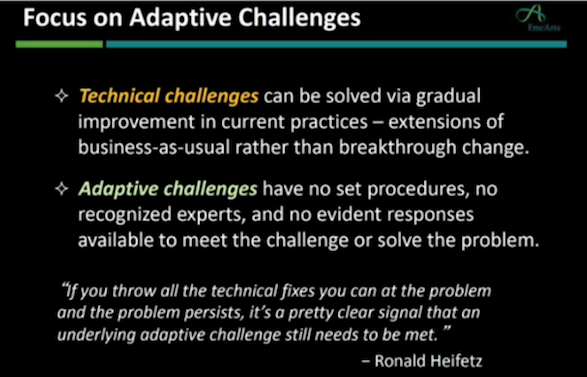President of EmcArts Richard Evans’s perceptive October 2012 talk on innovation in the arts translates, in many respects, to just about any sector of the economy.
I want to suggest that we are entering — and we’re pretty far into — a new era for the arts. … The old era was structured for growth. … [and] the value proposition that was sustained during that time was about excellence and scarcity.
There was a quality of programming that many had not had access to before. But, at the same time, there was the sense that we were taking artists from our communities and bringing them together in ensembles of unprecedented quality, and then selling them back to our communities at the highest ticket prices that those communities could afford. There’s an element of scarcity that is almost inevitably linked to the excellence that I think was underlying this first phase of the arts.
It’s a phase that I think is now decisively over. And I think we’re now having to be structured for resilience, not for growth. … It means that organizations have to develop much higher levels of adaptive capacity — the capacity to change effectively and respond to circumstances.
One of the stories he tells is about the Memphis Symphony Orchestra:
If you know the mission statements of most American orchestras, they tend to be something like: We’re going to perform the best music in the world, to the most people we can, at the highest possible quality, as often as possible.
Well, the Memphis Symphony Orchestra went in a different direction. They now say that their job is to create meaningful experiences for the citizens of Memphis, through music.
It’s that little shift that makes music the means and not the end that really opened doors in the community for the orchestra.
When they looked at how they might implement that mission, they found all sorts of partners in the community. Because instead of going out and saying, “Could we play our music in your space?” they were saying, “How can we work with you to address the issues that you have?”
And one of his touchstones is Ron Heifetz on technical and adaptive challenges:


